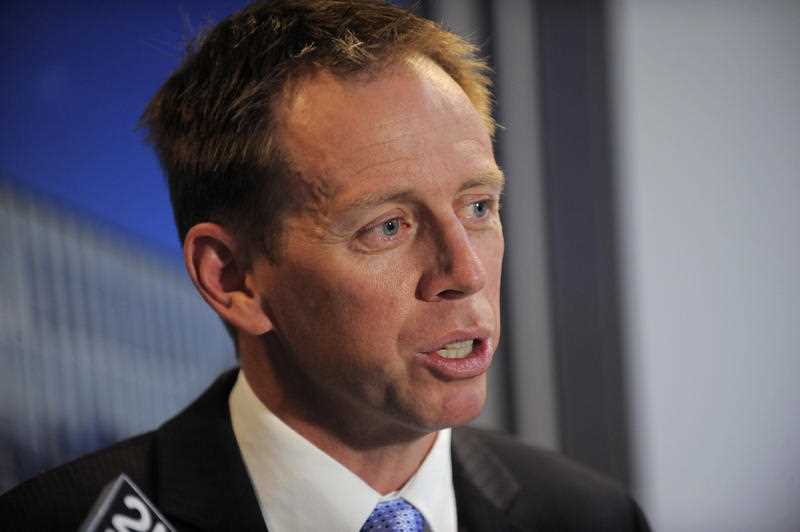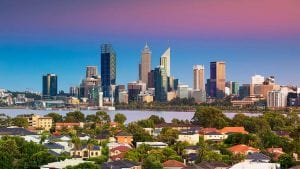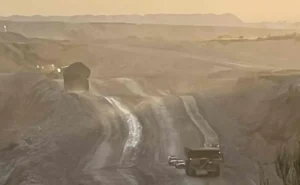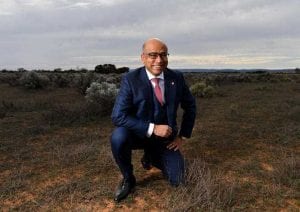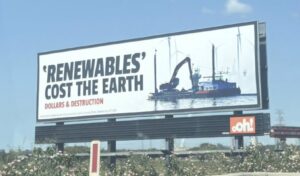
ACT energy minister Shane Rattenbury has again stressed that the Australian Capital Territory government would not support the federal Coalition’s National Energy Guarantee in its current form, despite what he described as “enormous pressure” on the states to wave through the policy.
Speaking in a webinar hosted by the Smart Energy Council on Tuesday morning, Rattenbury said the ACT still had a “lot of concerns” about the NEG, the main one being that it would not deliver the energy policy that Australia needed in a carbon constrained world.
“The ACT has been very clear that we cannot sign up to the deal in its current form,” Rattenbury said.
“The 26-28 per cent emissions reduction target is clearly not ambitious enough, and will make the task (of decarbonisation of the economy) more costly, more difficult and certainly more politically difficult than cutting from electricity sector.
“We are also skeptical about the NEG bringing down electricity bills,” he added. “And if other sectors are going to have to do heavy lifting (on emissions reduction), then it will lift costs in other key areas, like food and transport.”
Rattenbury said the ACT also had “significant concerns” about the use of offsets, as proposed in the NEG; about the lack of additionality for state climate action, and the lack of a mechanism to ratchet up emissions reduction ambition in the future.
“We are, I should add, also very concerned that (federal energy minister) Josh Frydenberg is trying to lock in an answer from the states by August 10, and then has to go back to the party room.
“We would like to have some assurance that there will be no deals made (for the subsidisation of new coal) after the fact,” he said.
Roger Price, the CEO and chairman of Australian renewable energy company Windlab, was even more damning about the NEG, warning it would result in another investment freeze, like that which brought the industry to its knees during the Abbott years of the Coalition government.
Price describes the NEG as an “awkward compromise” and said his company’s position was most definitely that there should be no NEG, instead of a bad NEG.
“We are influencing all of … the stakeholders that we are better off without the NEG,” he told the webinar on Tuesday morning.
“(It) lacks market transparency, I believe it’s massively over-regulated, and I think it has …competition problems,” Price said.
“We don’t have a reliability issue (on the NEM)… So, how much do we really want to further gold plate things to lift (reliability) by another fraction of a per cent?
“The only faults we do get are in distribution system… so we’re really punching at shadows.
“So, the only reason the NEG is there is for emissions, (which means) therefore there is simply no reason to have it there… It will overburden the industry with regulation.”
The comments from Rattenbury and Price come as the August 10 deadline looms ever closer, and as pressure mounts from the federal government, and some energy industry lobbyists, for the states to come to heel and agree to the NEG.
“The overwhelming message states are getting from industry in general and even parts of the renewable energy sector, is ‘oh, it’s not great, but we need certainty, and then we can (make changes) later’,” said Price.
“It’s up to us to counter that message.”
Added Rattenbury: “What we certainly need is good policy. We don’t have it with the NEG at the moment…
“I would urge people to get out there… There is clearly enormous pressure to finalise this, the ACT is getting enormous pressure. There are people trying to crush our dissent.”
The comments also happen to coincide with the long-awaited release of the Australian Energy Market Operator’s Integrated System Plan.
As we reported here, the ground-breaking study from AEMO has confirmed that the cheapest and smartest way to replace Australia’s ageing coal power fleet is to build more solar, wind and storage technologies.
This was not, however, the interpretation of much of the mainstream press, including the ABC, who chose to report – as AEMO’s main message – that was coal power would be needed for decades, and that the life of old clunkers like Liddell in NSW should be prolonged.
Rattenbury did not come away with the same take on the report.
“I see (the ISP report) has been run in the press as backing up coal,” he said during the webinar.
“I don’t think that is accurate. … What I take from AEMO report is that when coal reaches the end of its life, we need to have something to replace it.
“Under the NEG, we will actually reach a cliff. We need to make sure the new capacity is there, or energy prices will go through the roof,” he said.

